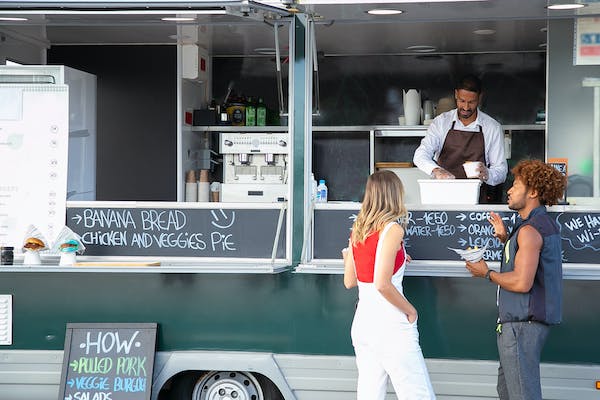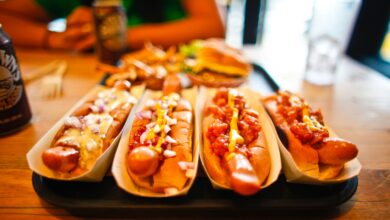The Rise of small food trailer A Mobile Culinary Revolution

Small food trailers have become increasingly popular in the culinary world, offering entrepreneurs a flexible and cost-effective way to enter the food industry. These compact mobile kitchens bring small food trailer gourmet delights to street corners, festivals, and events, catering to the on-the-go lifestyle of modern consumers.
Benefits of Operating a Small Food Trailer
Flexibility and Mobility
One of the primary advantages of a small food trailer is its mobility. Unlike brick-and-mortar restaurants, food trailers can relocate easily, targeting high-traffic areas or attending popular events. This flexibility allows owners to adapt to changing consumer trends and explore different markets without the constraints of a fixed location.
Lower Startup Costs
Compared to opening a traditional restaurant, launching a small food trailer requires significantly lower startup costs. Without the need for a storefront or extensive interior design, entrepreneurs can allocate more resources to quality ingredients and innovative menu offerings. This affordability makes it an attractive option for aspiring chefs and food enthusiasts with limited capital.
Ability to Test Market
Small food trailers provide an excellent platform for testing new concepts and menu items. With their agile nature, owners can gauge customer preferences and feedback in real-time, allowing for rapid adjustments and improvements. This ability to iterate quickly enables entrepreneurs to refine their offerings and build a loyal customer base before considering expansion.

Design and Layout Considerations
Optimizing Space
Efficient space utilization is crucial when designing a small food trailer. Every square inch counts, requiring thoughtful layout planning and organization. From compact kitchen appliances to creative storage solutions, maximizing functionality without compromising comfort is essential for smooth operations.
Equipment Selection
Choosing the right equipment is another critical aspect of small food trailer design. Compact and energy-efficient appliances are preferred to minimize power consumption and maximize utility. Additionally, durable materials that can withstand constant movement and varying weather conditions are necessary to ensure longevity and reliability.
Permits and Regulations
Navigating the legal requirements and regulations is a fundamental step in establishing a small food trailer business. From health and safety standards to local zoning laws, compliance is essential to avoid fines and penalties. Obtaining the necessary permits and licenses demonstrates professionalism and commitment to operating responsibly.
Marketing Strategies for Small Food Trailers
Social Media Presence
Building a strong presence on social media platforms is paramount for small food trailers to reach their target audience effectively. Engaging content, captivating visuals, and interactive promotions can help generate small food trailer buzz and attract customers. Leveraging social media influencers and food bloggers can also amplify visibility and credibility within the community.
Collaborations and Events
Partnering with local businesses and event organizers is a strategic way to expand reach and exposure. Collaborative pop-up events, food truck rallies, and community festivals offer opportunities to showcase unique offerings and connect with potential customers. Building mutually beneficial relationships with other vendors and organizers can lead to recurring opportunities and increased sales.
Customer Experience and Service
Efficiency
Efficient service is essential for delivering a positive customer experience in a small food trailer setting. Streamlining operations, optimizing workflow, and minimizing wait times contribute to customer satisfaction and retention. Investing in user-friendly ordering systems and staff training ensures smooth transactions and enhances overall efficiency.
Engagement
Creating a memorable and personalized experience sets small food trailers apart from traditional dining establishments. Interacting with customers, offering recommendations, and accommodating special requests foster a sense of connection and loyalty. Building rapport and forging genuine relationships encourage repeat business and word-of-mouth referrals.
Challenges and Solutions
Weather Conditions
Weather fluctuations can pose challenges for small food trailer operators, affecting customer traffic and sales. Implementing weather-resistant designs and equipment safeguards against adverse conditions, ensuring uninterrupted service. Additionally, diversifying revenue streams through catering services or online ordering mitigates the impact of inclement weather on business operations.
Limited Storage
Limited storage space is a common challenge faced by small food trailers, especially when managing inventory and supplies. Adopting inventory management systems and optimizing storage solutions maximize space utilization and minimize waste. Strategic planning and regular inventory audits help maintain adequate stock levels and prevent shortages during peak periods.
Success Stories
Several small food trailers have achieved remarkable success by embracing innovation, embracing community small food trailer engagement, and delivering exceptional customer experiences. From gourmet food trucks serving artisanal cuisine to dessert trailers specializing in unique treats, these success stories inspire aspiring entrepreneurs to pursue their culinary dreams.
Conclusion
In conclusion, small food trailers offer a viable pathway for aspiring entrepreneurs to enter the food industry with minimal overhead and maximum flexibility. By leveraging mobility, creativity, and strategic marketing, owners can overcome challenges and build thriving businesses that delight customers and enrich communities.




